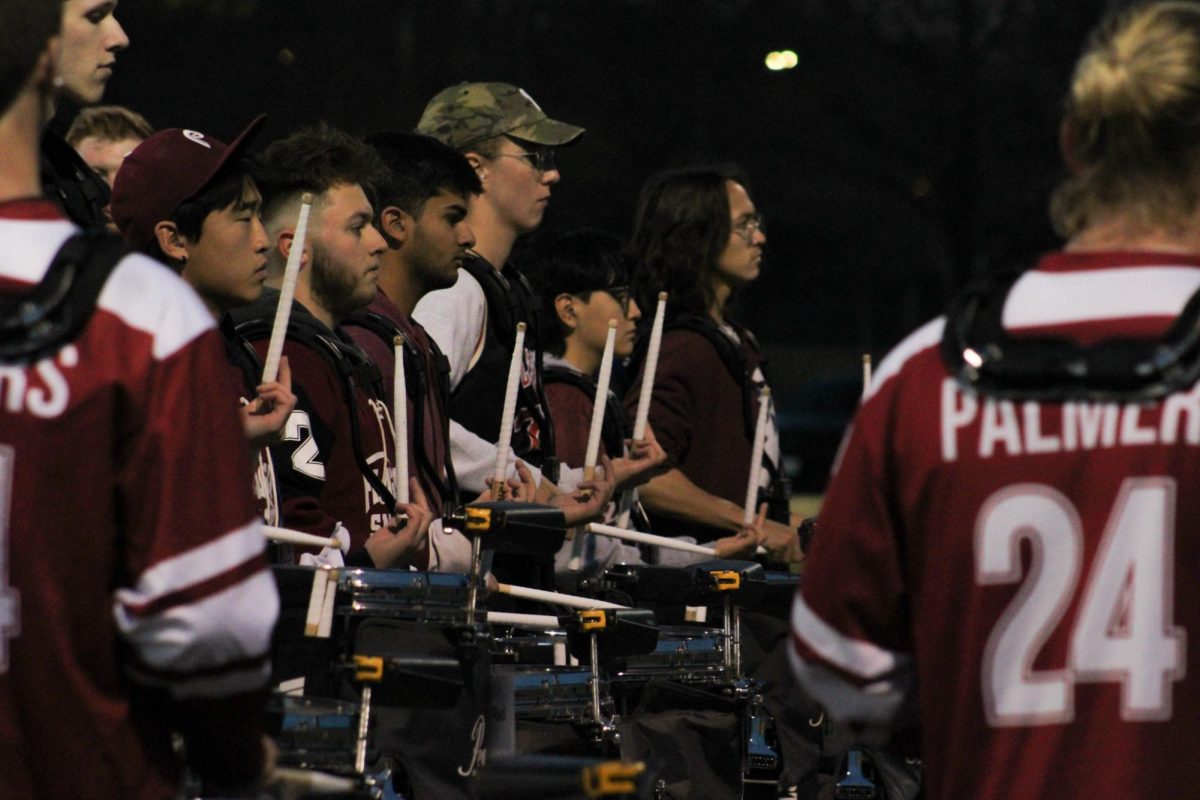Three years have passed since the release of Theophilus London’s first album, “Timez are Weird These Days.” After a long wait, London has finally returned with his sophomore album, “Vibes,” released Nov. 4.
The rapper is known for his unique sound, relaying an alternative, “hipster” hip-hop sound that is uniquely his own. London’s sound in “Timez are Weird These Days” had so many elements that it, at times, seems to struggle to present a consistent sound.
In his debut album, many of London’s lyrics were criticized as elementary and repetitive, most notably on the track, “Girls Girls $.” Did a three-year gap between releases help mature London musically and lyrically?
The answer is an affirmative yes. London developed greatly, but that maturity comes with outside help. Kanye West was anointed the executive producer of London’s new project and his influence is prevalent throughout “Vibes.” The entire album carries a more sultry and seductive sound as opposed to his more crowded-sounding debut album.
What “Vibes” is able to do is carry a central theme and demonstrate a newer, darker sound. The album begins with the sensual, relaxed track, “Water Me,” which moves at a much slower rate than the frenzied, rapid tracks of his debut album. The album continues to carry this sound into its next five tracks.
Each of these songs carries a dark, yet infectious groove, most prominently featured in the songs “Can’t Stop” and “Get Me Right.” “Can’t Stop” features Kanye West and received more attention than any of the album’s other tracks. It is percussive, electrified and almost sounds like a fanciful lullaby.
“Get Me Right” features a heavier, more percussive bass and begins to move the album away from its previously slower sound. “Get Me Right” shifts into “Heartbreaker,” a prominent taste of the sound London flaunted on his debut album.
“Heartbreaker” is catchy, progressive and thrilling – all of the musical elements that London has been praised for. But the difference here is that all of the elements flow together. He is able to move in multiple sonic areas, and still be successful in delivering continuity.
London continues to carry themes of his last album into the next track, “Do Girls,” which parallels the themes and styles of “Girls Girls $,” the most criticized track of “Timez are Weird These Days.” Although it is occasionally repetitive, “Do Girls” creates a coherent narrative in its short run time. The listener is able to hear the story and feel the tension of the situation that leads to an emotional climax.
This is the perfect transition into “Tribe,” the climax and the most boisterous track on “Vibes.” After the rush of “Tribe,” the album begins to fade back to where it started, on a low, dark note. This allows “Vibes” to come full circle in a way.
While London’s sound has changed and matured in this album, thanks to Kanye West, the rapper’s music still has a few holes.
Many of his lyrics are still fairly elementary and lack specifics. They are straightforward and cluttered with pop culture references that feel unneeded.
Do Girls” also becomes the most problematic track of the album. It is not only disrespectful to members of the gay community, but it feels incredibly creepy. With that in mind, London has matured his sound but still has a lot of room to grow.
Each track on “Vibes” is catchy, percussive and never strays from what London is best at conveying. The album is able to condense the clustered sound of his first album and put it into a masterfully produced record that carries an abundance of different sounds that work together instead of against each other.
Troy Kowalchuk can be reached at [email protected].



















Tim • Nov 4, 2014 at 1:00 am
Funny, how if a musician – and I use that term loosely — writes a song that is incredibly disrespectful to gay people, as this author notes, that the “artist” has “alot of room to grow”. But if another musician were to write incredibly disrespectful lyrics about Jews or African-Americans or Koreans (fill in your own blank), for example, he/she probably would never get the chance to grow again. Says something, doesn’t it, about selective hatred in America?